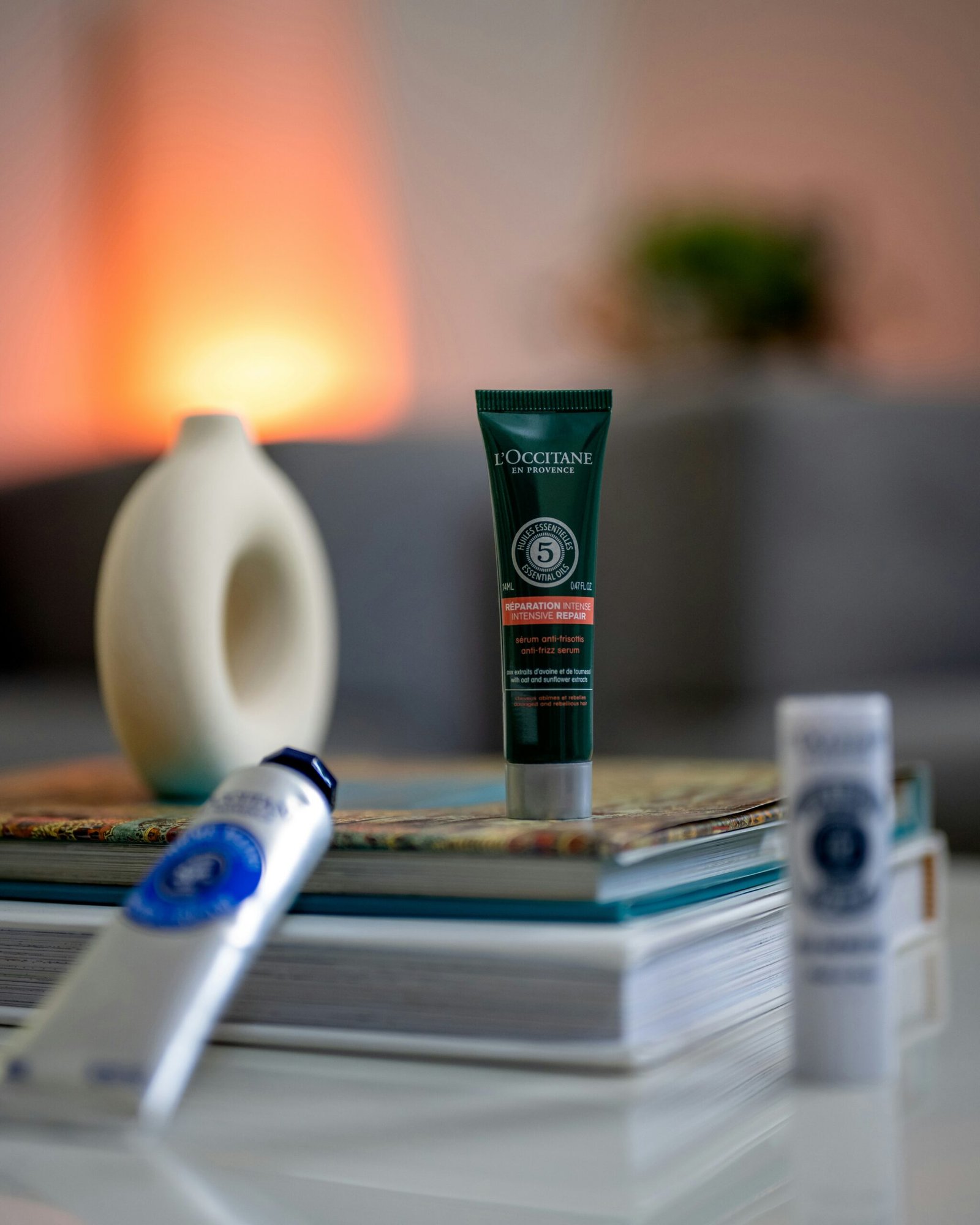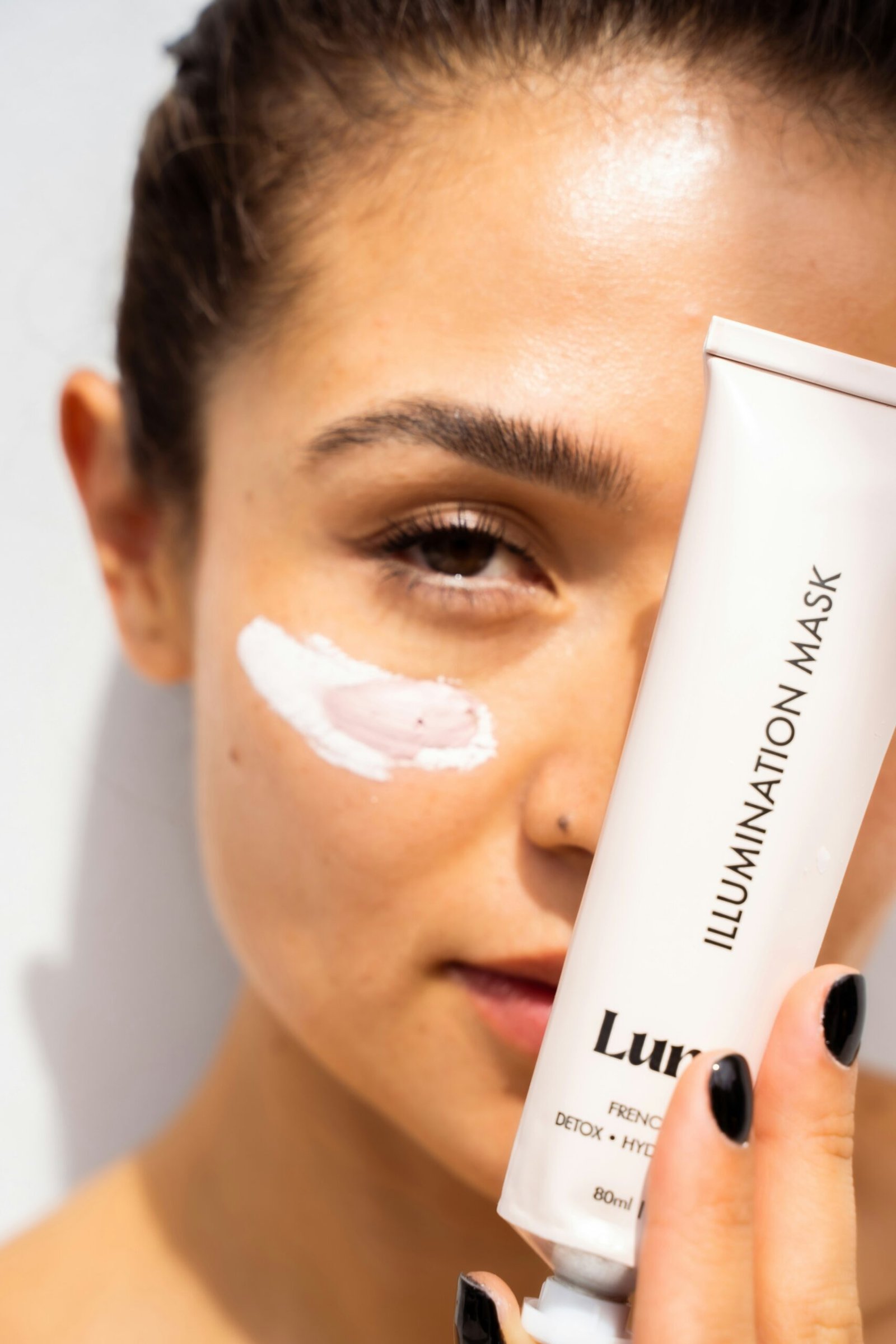The Skincare Diet: Nutritional Tips for a Radiant Complexion
The concept of the ‘Skincare Diet’ emphasizes the critical connection between nutrition and the health and appearance of your skin. It’s widely recognized that what you consume can significantly impact your skin’s condition, influencing everything from its elasticity and moisture levels to its overall glow. A well-balanced diet rich in essential nutrients is fundamental in promoting skin health, serving as the cornerstone for achieving a radiant complexion.
A variety of vitamins and minerals play pivotal roles in maintaining skin health. For instance, Vitamin C is renowned for its antioxidant properties and its ability to boost collagen production, while Vitamin E helps protect the skin from oxidative stress. Additionally, minerals such as Zinc and Selenium contribute to skin repair and protection. Consuming foods rich in these nutrients can lead to visible improvements in skin texture and tone.
Throughout this article, we will delve deeper into the specific vitamins and minerals that are essential for skincare, as well as the foods that are most beneficial for your complexion. By understanding and incorporating these dietary elements into your daily routine, you can support your skin’s health from the inside out. Whether you’re looking to reduce signs of aging, combat acne, or simply achieve a healthier glow, the Skincare Diet offers valuable insights into how your nutritional choices can make a significant difference.
The Role of Hydration in Skin Health
Hydration plays a pivotal role in maintaining a radiant complexion. Water is essential for the optimal functioning of skin cells, contributing to a healthy, glowing appearance. Proper hydration helps to keep the skin moisturized, enhances its elasticity, and aids in the repair process, ensuring that the skin remains supple and smooth. Furthermore, water assists in flushing out toxins from the body, reducing the likelihood of skin issues such as acne and dullness.
For optimal skin health, it is recommended to consume at least eight glasses of water a day. This general guideline ensures that the body and skin remain adequately hydrated. In addition to water, incorporating hydrating foods into your diet can significantly benefit your complexion. Foods high in water content, such as cucumbers, watermelon, and oranges, not only provide hydration but also supply essential vitamins and antioxidants that support skin health.
To increase water consumption throughout the day, consider adopting simple yet effective strategies. Start your day with a glass of water, and aim to drink a glass before each meal to ensure a steady intake. Carrying a reusable water bottle can serve as a constant reminder to stay hydrated. Moreover, flavoring your water with slices of fruits or herbs can make drinking water more enjoyable. Herbal teas and coconut water are also excellent alternatives that contribute to your daily hydration needs while providing additional nutrients.
By prioritizing hydration through both direct water intake and hydrating foods, you can support your skin’s health and achieve a more vibrant complexion. Remember, consistent and adequate hydration is a cornerstone of effective skincare, ensuring that your skin remains radiant and resilient against environmental stressors.
Vitamins Essential for Glowing Skin
Achieving a radiant complexion goes beyond topical applications and skincare routines; it requires a holistic approach that includes essential vitamins. Vitamins A, C, E, and D play pivotal roles in maintaining and enhancing skin health. Each of these vitamins contributes uniquely to the skin’s vitality and resilience.
Vitamin A is crucial for skin repair and maintenance. It promotes cell turnover, which helps to keep the skin smooth and youthful. Retinoids, a derivative of Vitamin A, are well-known for their anti-aging properties. Carrots, sweet potatoes, and leafy greens are rich sources of Vitamin A. Incorporating these foods into salads, soups, and smoothies can significantly benefit your skin.
Vitamin C is indispensable for collagen production, which is essential for maintaining skin elasticity and firmness. This potent antioxidant also helps to neutralize free radicals, reducing oxidative stress on the skin. Citrus fruits, strawberries, bell peppers, and broccoli are excellent sources of Vitamin C. Adding these fruits and vegetables to your diet, such as through fresh juices or vibrant salads, can help support collagen synthesis and overall skin health.
Vitamin E acts as a powerful antioxidant, protecting the skin from environmental damage and supporting its natural barrier function. It helps to prevent premature aging and keeps the skin hydrated. Nuts, seeds, and green leafy vegetables are abundant in Vitamin E. Incorporating nuts and seeds into your snacks or adding spinach to your meals can ensure you receive enough Vitamin E.
Vitamin D, often referred to as the “sunshine vitamin,” is essential for skin cell growth and repair. It also enhances the immune function of the skin, helping to prevent infections. While sunlight is a primary source of Vitamin D, fatty fish, fortified dairy products, and mushrooms also provide this nutrient. Including these foods in your diet can help maintain adequate Vitamin D levels, especially during the winter months.
Incorporating a variety of these vitamin-rich foods into your daily meals can greatly contribute to a glowing, healthy complexion. Balancing your diet with these essential nutrients ensures that your skin remains resilient, youthful, and radiant.
Minerals that Boost Skin Health
Minerals play an indispensable role in maintaining and enhancing skin health. Among these, zinc, selenium, and magnesium stand out for their notable benefits. Adequate intake of these minerals can help prevent acne, improve skin elasticity, and protect against damage from free radicals, which are known to accelerate aging and skin damage.
Zinc is a crucial mineral for skin health, primarily due to its anti-inflammatory properties that help prevent acne and facilitate wound healing. It also aids in the regulation of oil production, making it a vital component for those with oily skin. Zinc-rich foods include meat, shellfish, legumes, seeds, nuts, and dairy products. To ensure sufficient zinc intake, consider incorporating these foods into your diet regularly.
Selenium is another essential mineral that offers robust protection against oxidative stress caused by free radicals. This stress can lead to premature aging, wrinkles, and skin damage. Selenium works synergistically with antioxidants like vitamin E to enhance skin defense mechanisms. Foods high in selenium include Brazil nuts, seafood, eggs, and whole grains. Even a small daily serving of these foods can significantly contribute to your selenium intake.
Magnesium plays a pivotal role in maintaining skin elasticity and moisture. It acts as a natural moisturizer by regulating cellular processes that keep the skin hydrated and supple. Additionally, magnesium has anti-inflammatory properties that can help soothe irritated skin. You can find magnesium in foods such as leafy green vegetables, nuts, seeds, and whole grains. Ensuring a diet rich in these foods can help maintain optimal magnesium levels, benefitting skin health.
To maximize the benefits of these minerals, it is advisable to maintain a balanced diet that includes a variety of nutrient-rich foods. Combining these minerals with a comprehensive skincare regimen can lead to a more radiant complexion and overall healthier skin.
Healthy Fats for a Radiant Complexion
Healthy fats play a crucial role in maintaining skin health and achieving a radiant complexion. Among these, omega-3 and omega-6 fatty acids are particularly beneficial. These essential fatty acids are vital for maintaining the skin’s lipid barrier, which acts as a protective shield against environmental stressors and prevents moisture loss. A well-functioning lipid barrier keeps the skin hydrated, supple, and resilient.
Omega-3 fatty acids are known for their anti-inflammatory properties, which can help in reducing skin redness, irritation, and conditions such as eczema. They also promote the production of collagen, a protein that maintains skin elasticity and firmness. On the other hand, omega-6 fatty acids support skin cell regeneration, which is essential for repairing and maintaining the skin’s overall health.
Incorporating food sources rich in these healthy fats into your diet is a practical way to enhance your skincare routine. Fatty fish such as salmon, mackerel, and sardines are excellent sources of omega-3 fatty acids. For those who prefer plant-based options, flaxseeds, chia seeds, and walnuts are great alternatives. Avocados are another versatile option, providing both omega-3 and omega-6 fatty acids along with a host of vitamins and antioxidants.
To integrate these beneficial fats into your meals, consider a few simple ideas. Start your day with a smoothie containing flaxseed or chia seeds. For lunch, a salad topped with slices of avocado and a sprinkle of walnuts can be both nutritious and satisfying. Dinner options might include baked salmon paired with a side of quinoa or roasted vegetables drizzled with olive oil. These meal suggestions not only promote skin health but also contribute to overall well-being.
By prioritizing healthy fats in your diet, you can support your skin from the inside out, leading to a more radiant and youthful complexion. Remember, a balanced intake of omega-3 and omega-6 fatty acids is key to maintaining optimal skin health.
Antioxidant-Rich Foods for Skin Protection
Antioxidants play a crucial role in protecting the skin from damage caused by free radicals and environmental stressors. Free radicals are unstable molecules that can harm skin cells, leading to premature aging and various skin issues. Antioxidants neutralize these free radicals, thereby minimizing their harmful effects and promoting healthier skin. Incorporating antioxidant-rich foods into your diet is a fundamental step towards achieving a radiant complexion.
Berries, such as blueberries, strawberries, and raspberries, are among the most potent sources of antioxidants. These fruits are rich in vitamins C and E, as well as flavonoids, which are known for their skin-protective properties. Including a handful of berries in your morning smoothie or yogurt can provide a significant antioxidant boost to your daily diet.
Nuts, particularly almonds and walnuts, are another excellent source of antioxidants. They contain vitamin E, which not only helps in protecting the skin from oxidative stress but also aids in maintaining skin hydration. A small portion of nuts as a snack or sprinkled over salads can enhance your intake of these beneficial compounds.
Leafy greens, such as spinach, kale, and Swiss chard, are also packed with antioxidants, including vitamins A, C, and K, as well as polyphenols. These vegetables can easily be incorporated into your diet through salads, soups, or green smoothies. The high concentration of antioxidants in leafy greens contributes to overall skin health by supporting cell repair and renewal.
Additionally, other foods like dark chocolate, green tea, and certain spices such as turmeric, are rich in polyphenols and flavonoids. Dark chocolate with a high cocoa content can be enjoyed in moderation as a treat, while green tea makes for a refreshing beverage that also supports skin health. Turmeric, known for its anti-inflammatory properties, can be added to various dishes for both flavor and skin benefits.
By integrating these antioxidant-rich foods into a balanced diet, you can enhance your skin’s natural defense mechanisms and promote a more youthful, radiant complexion.
Foods to Avoid for Clear Skin
When aiming for clear and radiant skin, certain dietary choices play a crucial role. High sugar intake, processed foods, and excessive dairy consumption are among the most detrimental to skin health. These foods can disrupt your body’s balance, leading to various skin issues including acne, inflammation, and premature aging.
High sugar intake, often found in sweets, sodas, and even some savory items, can trigger a spike in insulin levels. This insulin surge can subsequently lead to increased oil production in the skin, clogging pores and promoting acne. Furthermore, high sugar diets have been linked to advanced glycation end products (AGEs), which accelerate skin aging by damaging collagen and elastin, essential proteins for skin elasticity and firmness.
Processed foods are another major culprit. These items often contain high levels of unhealthy fats, preservatives, and artificial additives that can cause inflammation throughout the body, manifesting in the skin as redness, puffiness, and breakouts. The low nutritional value of processed foods also deprives the skin of essential vitamins and minerals needed for repair and regeneration.
Excessive dairy consumption can also negatively impact skin health. Some studies suggest that dairy products can trigger hormonal changes, leading to increased sebum production and clogged pores, which are primary contributors to acne. Additionally, certain proteins in dairy can cause inflammation, exacerbating skin issues.
To promote clearer skin, consider reducing or eliminating these problematic foods from your diet. Opt for natural sweeteners like honey or maple syrup in moderation, and choose whole, unprocessed foods rich in nutrients. Incorporate more fruits, vegetables, lean proteins, and healthy fats into your meals. Non-dairy milk alternatives such as almond or oat milk can be excellent substitutes for cow’s milk. Making these dietary adjustments can significantly improve your skin’s appearance and overall health.
Creating a Balanced Skincare Diet Plan
Crafting a balanced skincare diet plan is essential for achieving and maintaining a radiant complexion. A well-structured diet not only supports overall health but also provides the skin with the nutrients it needs to stay vibrant and youthful. To start, focus on meal planning that incorporates a variety of nutrient-rich foods, paying close attention to portion sizes to ensure a balanced intake of vitamins, minerals, and antioxidants.
Begin by planning meals that are rich in fruits and vegetables, which are packed with essential vitamins like A, C, and E. These vitamins play crucial roles in skin repair and protection. Incorporate healthy fats from sources such as avocados, nuts, seeds, and olive oil, which are beneficial for maintaining the skin’s moisture barrier.
Proteins are another critical component of a skincare diet. Lean protein sources such as chicken, fish, tofu, and legumes provide the necessary amino acids for collagen production, which keeps the skin firm and elastic. Whole grains like brown rice, quinoa, and oats should be included for their high fiber content, which aids in detoxification and promotes a clear complexion.
Here’s a sample meal plan for a week that can help enhance skin health:
Breakfast
Monday: Greek yogurt with mixed berries and a drizzle of honey.
Tuesday: Spinach and mushroom omelet with whole-grain toast.
Wednesday: Smoothie with kale, banana, almond milk, and chia seeds.
Thursday: Oatmeal topped with nuts, seeds, and fresh fruit.
Friday: Avocado toast with a poached egg and a side of tomato slices.
Saturday: Cottage cheese with pineapple chunks and a sprinkle of flaxseed.
Sunday: Whole-grain pancakes with a side of fresh strawberries.
Lunch
Monday: Quinoa salad with chickpeas, cucumber, tomatoes, and a lemon-tahini dressing.
Tuesday: Grilled chicken breast with a side of steamed broccoli and sweet potato.
Wednesday: Lentil soup paired with a mixed greens salad.
Thursday: Salmon salad with avocado, cherry tomatoes, and a balsamic vinaigrette.
Friday: Turkey and vegetable wrap with hummus.
Saturday: Soba noodle salad with edamame and shredded carrots.
Sunday: Black bean and corn quinoa bowl with a cilantro-lime dressing.
Dinner
Monday: Baked cod with a side of roasted Brussels sprouts and quinoa.
Tuesday: Stir-fried tofu with bell peppers, served with brown rice.
Wednesday: Herb-roasted chicken with a side of mashed cauliflower.
Thursday: Grilled shrimp skewers with a side of asparagus and wild rice.
Friday: Veggie-packed spaghetti with whole-grain pasta and marinara sauce.
Saturday: Beef stir-fry with broccoli and snap peas over jasmine rice.
Sunday: Stuffed bell peppers with ground turkey and mixed vegetables.
Snacks
Monday: Apple slices with almond butter.
Tuesday: Carrot sticks with hummus.
Wednesday: Mixed nuts and seeds.
Thursday: Fresh fruit smoothie.
Friday: Greek yogurt with a handful of berries.
Saturday: Celery sticks with peanut butter.
Sunday: Dark chocolate squares with a few almonds.
Consistency is key when it comes to dietary habits for skin health. Adopting and maintaining these nutritious meal plans can lead to significant improvements in skin appearance over time. Remember, a balanced skincare diet is a long-term commitment that yields lasting benefits for your complexion.
Top 25 Skincare Tags
A well-rounded approach to skincare involves not only topical treatments but also a balanced diet rich in essential nutrients. To help readers navigate this multifaceted topic, we’ve compiled a list of the top 25 tags related to the skincare diet. These tags encapsulate key themes and concepts discussed in this article, providing a roadmap for readers interested in achieving a radiant complexion through nutritional means.
Share this content:



 Italiano
Italiano English
English Español
Español